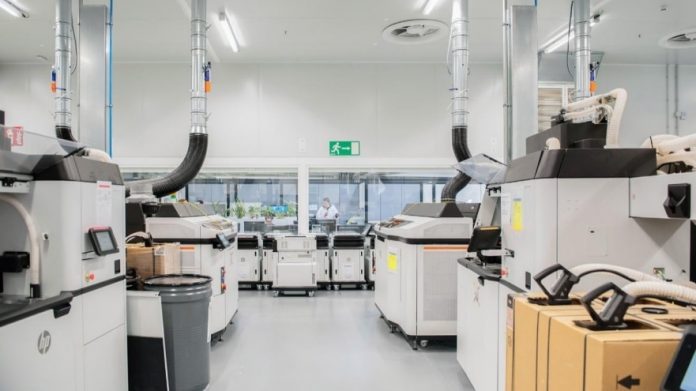
In an industry first, automotive giant Ford has partnered with global tech company HP to reuse spent 3D printed powders and parts and turn them into injection moulded vehicle parts with no compromise in the durability and quality standards.
Ford said the recycled materials are being used to manufacture injection-moulded fuel-line clips installed first on Super Duty F-250 trucks.
According to the company, the parts have better chemical and moisture resistance than conventional versions, are 7% lighter and cost 10% less.
Debbie Mielewski, Ford technical fellow, Sustainability, said the Ford research team has identified 10 other fuel-line clips on existing vehicles that could benefit from this innovative use of material and are migrating it to future models.
“Finding new ways to work with sustainable materials, reducing waste and leading the development of the circular economy are passions at Ford,” Ms Mielewski continued.
“Many companies are finding great uses for 3D printing technologies, but, together with HP, we’re the first to find a high-value application for waste powder that likely would have gone to landfill, transforming it into functional and durable auto parts.”
HP 3D printers are already designed for high efficiency, with systems and structures to minimise the excess material they generate and reuse a greater percentage of the materials put into them. Working with Ford, which uses HP’s 3D printing technology at the company’s Advanced Manufacturing Centre, the team created this solution that produces zero waste.
“You get more sustainable manufacturing processes with 3D, but we are always striving to do more, driving our industry forward to find new ways to reduce, reuse and recycle powders and parts,” said Ellen Jackowski, chief sustainability and social impact officer, HP.
“Our collaboration with Ford extends the environmental benefits of 3D printing even further, showcasing how we are bringing entirely different industries together to make better use of spent manufacturing materials, enabling a new circular economy.”
Ms Mielewski said Ford is developing new applications and utilising a multitude of different processes and materials for 3D printing, including filaments, sand, powders and liquid vat polymerisation, in an effort to achieve 100% sustainable materials in its vehicles.
She said the company already employs 3D printing for a variety of low-volume commercial vehicle parts, as well as fixtures used by assembly line workers, saving time and enhancing quality.
“A key to achieving our sustainability goals and solving the broader problems of society is working with other like-minded companies – we can’t do it alone,” Mielewski added.
“With HP, we defined the waste problem, solved technical challenges and found a solution in less than one year, which is something in which we all take pride.”




















